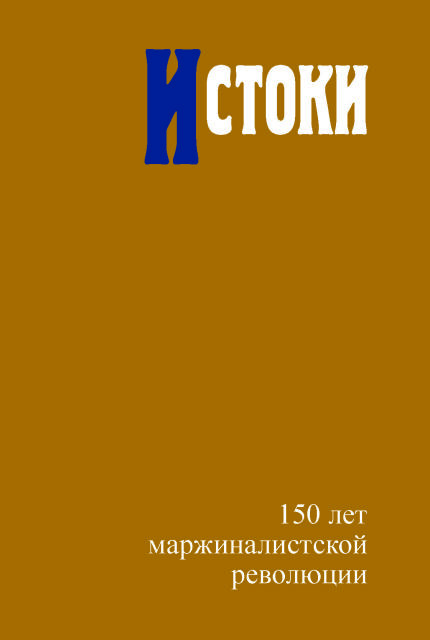- A
- A
- A
- АБB
- АБB
- АБB
- А
- А
- А
- А
- А
The Origins: 150th Anniversary of the Marginalist Revolution
- Year2023
- Number of pages564
- ISBN978-5-7598-2582-1
- doi10.17323/978-5-7598-2582-1
About
The 10th issue of the almanac The Origins (“Istoki”) deals with the150th anniversary of the marginalist revolution in economics which is the milestone separating the prehistory and the new history of economic science. This issue contains the less well-known works of Carl Menger, William Stanley Jevons and Leon Walras which may open to the reader the views of these outstanding persons on different problems. The first part contains the works dealing with the history of economic thought and the forerunners of marginalism. The second part off ers the works on general social and political problems. The third part deals with the theory of money. The almanac also contains the article by William Jaffé about the letters exchange between Leon Walras and the great mathematician Henri Poincaré. Gilles Campagnolo puts the work of Carl Menger in the context of his family and social life and ideological atmosphere in Austria and Germany. Marek Loužek opens for the readers the context of the famous Methodenstreit between Menger and Schmoller. The article by R.I. Kapelyushnikov brings to us the ideas of Philipp Henry Wicksteed, one of the most interesting thinkers of the period whose work “Scope and Method of Political Economy” is also publishedin the almanac. This issue also contains the first significant reaction to the marginalist revolution in Russia — M.I. Tugan-Baranovsky’s article in “Juridichesky vestnik” (1890). Its importance is analyzed in N.A. Makasheva’s article. The only article in this issue not connected with the marginalist revolution is A.V. Safronov’s article which carries on the task of comprehending the role of Gosplan in the Soviet economic system.
For students and professors of economics, researchers and everybody interested in economic history and history of economic thought.
Other books by these authors
.jpg)
The Origins: Economics — “the Dismal Science”?
- Editorial Board: Vladimir Avtonomov
- Oleg Ananyin et al.
.jpg)
Mobility and Stability in the Russian Labour Market
- Edited by Vladimir Gimpelson and Rostislav Kapeliushnikov
.jpg)
The Russian Labour Market Through the Prizm of Demography
- Edited by Vladimir Gimpelson
- Rostislav Kapeliushnikov

.jpg)
.jpg)
.jpg)
.jpg)
.jpg)
.jpg)